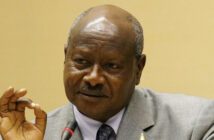Marek Zmyslowski is Managing Director/Chief Executive, Jovago.com, which is arguably Africa’s largest hotel booking portal. The outfit began operation in Nigeria two years ago. In this interview, Zmyslowski speaks on running an internet-based firm.
Tell us about Jovago Company. What really inspired the whole idea?
Before now, hotel bookings were made at the reception of the hotel. But with the help of technology, we can book the hotel on internet or Jovago.com portal. So this impact of technology offered some opportunities to hotel to increase sale.
As it were, Jovago is Africa’s No.1 hotel booking website, which allows you to get the best prices for more than 25,000 hotels in Africa, 2,000 hotels in Pakistan and more than 200,000 hotels around the world. Our ambition is to bring every bit of available accommodation on line, and to create the easiest and cheapest way for customers to book it.
At Jovago, we have hundreds of travel specialists constantly in touch with our customers. We made our debut in Nigeria two years ago. So far, we have 8,500 hotels registered on our platform. Currently, our offices are located in Lagos, Ibadan, Calabar, Abuja, Port Harcourt, Nairobi in Kenya, Senegal, Dakar, Abidjan and across other cities in Africa.
What is the strength of the company?
I think after two years, we’re able to become the leader of online tussles. Our target is to become the leader of online hotel booking in Nigeria and on the continent of Africa. So far, we are proud to say today that we work with the biggest number of hotels in Africa which has been verified by our people. Right now, we have the biggest task to make sure everyone knows Jovago and they will find out about our services and start to use them because we know we have great products that we want everybody to know and use.
What proportions of Nigerian hotels are on your platform and what is the process of getting them listed?
We have about 8,500 hotels in Nigeria since we started and we plan to expand those further. In the next four years, we are looking for how we can enlist more 7,500 hotels on our platform, to work with Jovago, to allow us put them online and bring them customers. On what it takes to get them listed, it sound more easier than what it appears in reality.
Just to bring people and convince them to work with us because they want to have face-to-face connection with Jovago.
Your firm is not the only booking platform in Nigeria. Tell us what is unique about your own platform?
If you ask me, I’ll say our customer service. Because we understand that customer service is everything that happens during travelling for customers. Because you’re going to end up mixing with the experiences and coming up with one image. So we make sure our customer service is focus on efficient service delivery. That not only makes Jovago the best but the hotels that customers go are also the best. We try to give our customers the best, and also make the hotels on our platform the best.
What is your perception about doing this kind of business in this part of the world?
I think it’s much more challenging because there are many more challenges that you’re faced with in a developing market than in a developed market. But it is much more rewarding here than in the developed market because you can just win more. I wouldn’t say business is bad but there is a whole lot of difference.
How do you overcome challenges?
I don’t want to give you something simple and obvious but what I do to overcome challenges. I make a mistake and I find out why did I made that mistake and I try to change my approach towards the game with different approaches and if it works, I move on.
What is the contribution of the Nigerian market to Jovago’s operation?
Nigeria remains our key market and our biggest market. More than half of our revenue comes from Nigeria and it will stay like that. Nigeria is the biggest country, biggest economy with largest population for our operation and it will continue like that.
Normally, no business can survive in an insecure and tense environment. How has insurgency in the Northeast affected your operation?
I will say no because Nigeria travels is all about business and Boko Haram has been there for some years unfortunately. But business has already known about this and business has to go, the show must go on anyway despite the insecurity in the north. But generally, I will say no, it is not affecting us. It’s not as bad as people say.
Tell us your management style?
I think management style is defined by the people you work with. I believe you have to have different management styles for different persons you work with. Your management style is defined by the persons you’re working with. So I will have different management style for the people that work with me. I will also have different management style for a very smart person who is very committed, for instance. So I think management style is something that you should have differently for different people because I’m just trying to adjust to the situations.
What is the toughest decision you have made in your capacity as CEO?
My toughest business decision was a situation when I had to change my acquisition strategy for the people working with me on full-time, because it costs much money and I came to this conclusion that if I want to have the biggest number of hotels, I don’t need much people working with me, because I don’t have money to pay them for full-time. So I ended up giving them freelance jobs. If you work well you will make money, if you don’t work well you will not make money. So I have to select few people who will work with me on full-time basis. And I told others that I can’t continue doing this review, I couldn’t offer you job here for personal reasons. And it finished very well for the company.
How do you motivate your staff?
I offer them a very controversial opinion because I don’t think it’s right to motivate anyone, you have to motivate yourself. Everyone needs to keep on going, either motivation or no motivation. In order for someone to get motivated in the company I need to make sure that you contribute well to the growth of the company.
Source: The Nation



